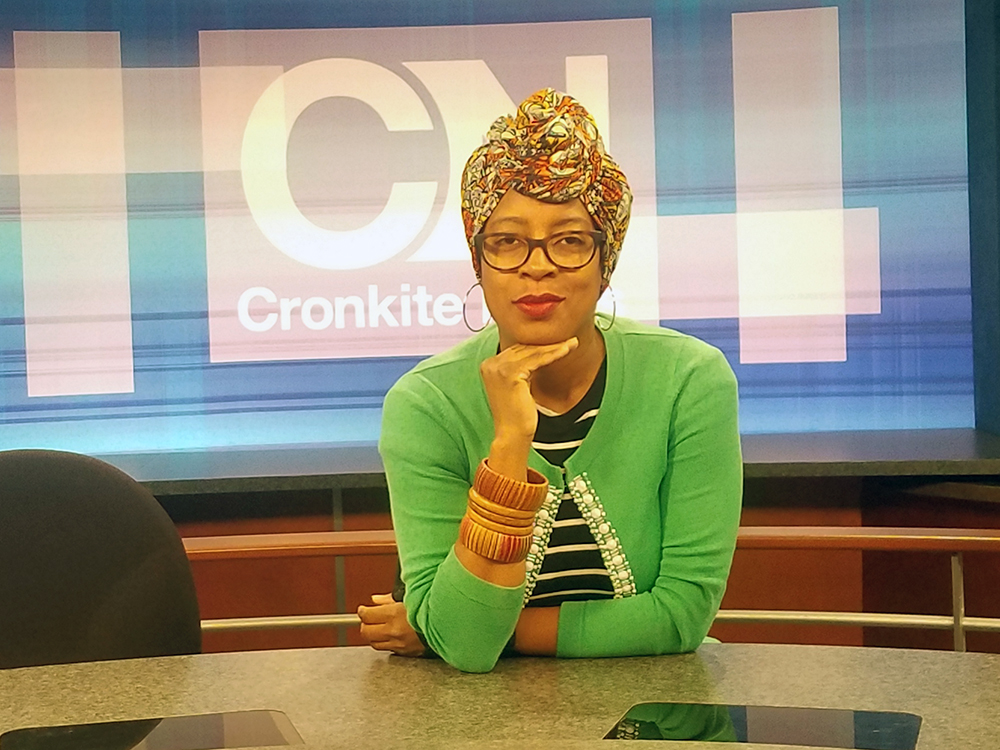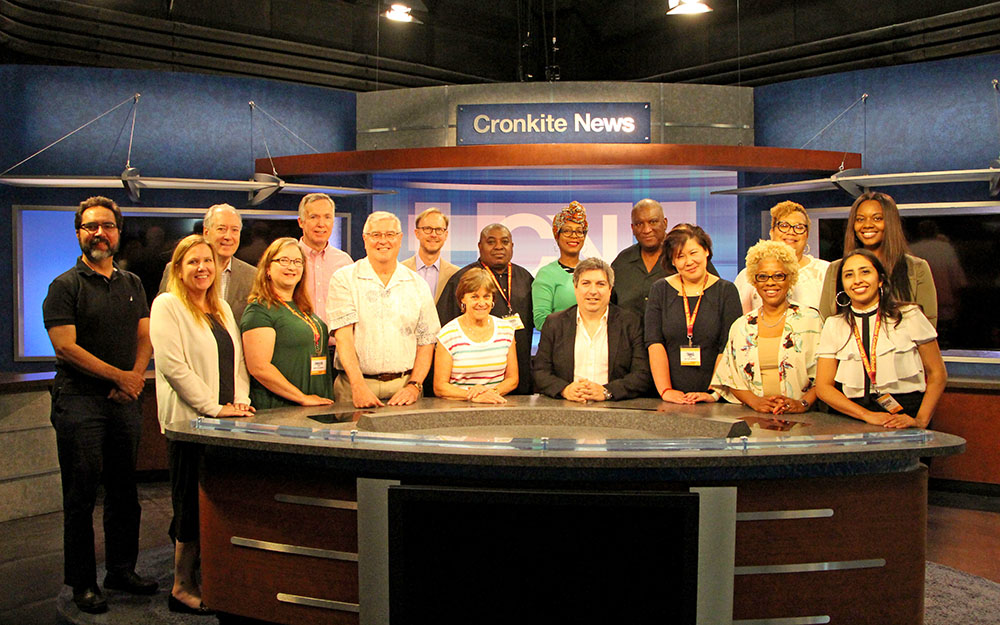The assistant professor of journalism was selected as one of 15 faculty members from colleges and universities nationwide to learn more about entrepreneurial journalism at Arizona State University’s Walter Cronkite School of Journalism and Mass Communication this summer.
This summer, Assistant Professor Carolyn Desalu participated in the Scripps Howard Journalism Entrepreneurship Institute, a five-day program held at the Walter Cronkite School of Journalism and Mass Communication at Arizona State University.
The program covered a wide range of business-related topics, spanning from how to succeed as an independent business owner to entrepreneurship education, diversity, working in a high growth start up and pitching. For the latter, fellows were asked to research; evaluate the need for their product or service; identify recurring revenue streams, financial sustainability and potential competitors; and present a complete pitch for their respective idea within the span of the Institute. Additionally, and most significantly, Institute fellows learned how to incorporate facets of entrepreneurial journalism into their teaching experience with the objective of creating new courses on their respective campuses.
Desalu, who proposed a new course called Freelancing and Consulting for Elon’s 2019 summer session, covered topics such as freelancing, pitching, networking and others that ultimately served as a foundation for working in a gig economy.
“Scripps was in June, and my course began in July,” Desalu said. “I was able to incorporate everything I had learned almost immediately.”
Desalu’s goal was to hone in on areas of the industry that are not emphasized as heavily in more traditional courses. For example, Freelancing and Consulting was the first class taught through the School of Communications that focused specifically on the gig economy – work outside of traditional, long-term employer-employee relationships.
“While we have a responsibility to provide students with an understanding of the traditional way to get a job, the landscape has changed for communications and media students,” Desalu said. “We need to teach them about their respective fields as well as provide alternatives for generating income and pursuing their passion.”

Desalu has an extensive background in the journalism field. Some of her previous experience includes work with Essence, Jet, Ebony, InStyle, The Globe and Mail and The Atlanta Journal-Constitution. She said she was thrilled to participate in the Scripps program because she wanted to learn more about journalism entrepreneurship and be equipped to share that information with her students.
“I want to give back to Elon students,” said Desalu. “As a professor, it is important for me to maintain industry connections and actively provide valuable insight for students.”
Desalu cites three lessons that she found most valuable from her experience. One was the importance of hyperlocal news.
“Media is a huge, changing landscape,” Desalu said. “People want news that feels closer to home.”
The second was the importance of finding resources for your work.
“This means finding other ways to get your story published,” Desalu said. “Your story may not always be picked up, but that doesn’t have to be the end of it.”
Finally, she was reminded about the importance of sharing ideas and starting now. “Often, people wait for everything in their world to align perfectly before starting a business,” she said. “In a gig economy, coming up with new ideas and ways to improve an idea, really, being flexible, is key.”
In her Freelancing and Consulting course, she hopes to instill in her students a sense of confidence. “One of the first discussions at the institute was what to do when your business fails. That was instrumental because it will happen at some point but the goal isn’t to quit; it’s the exact opposite and this is where flexibility and more broadly, the ability to rebound, is essential.”
Desalu expressed appreciation for the opportunities provided to her through the Scripps Howard Journalism Entrepreneurship Institute. She also looks forward to incorporating what she learned into the School of Communications classes, curriculum and initiatives.
“I feel blessed to have the opportunity to create a course like this and continue to provide opportunities for entrepreneurship and innovation,” Desalu said.
The summer institute, which just concluded its eighth year, was led by Dan Gillmor, an internationally known speaker and thinker on new media and entrepreneurship. Gillmor was supported joined by fellow entrepreneurs, investors and Cronkite faculty.
The institute is made possible through a grant from the Scripps Howard Foundation, the philanthropic arm of The E.W. Scripps Company.



